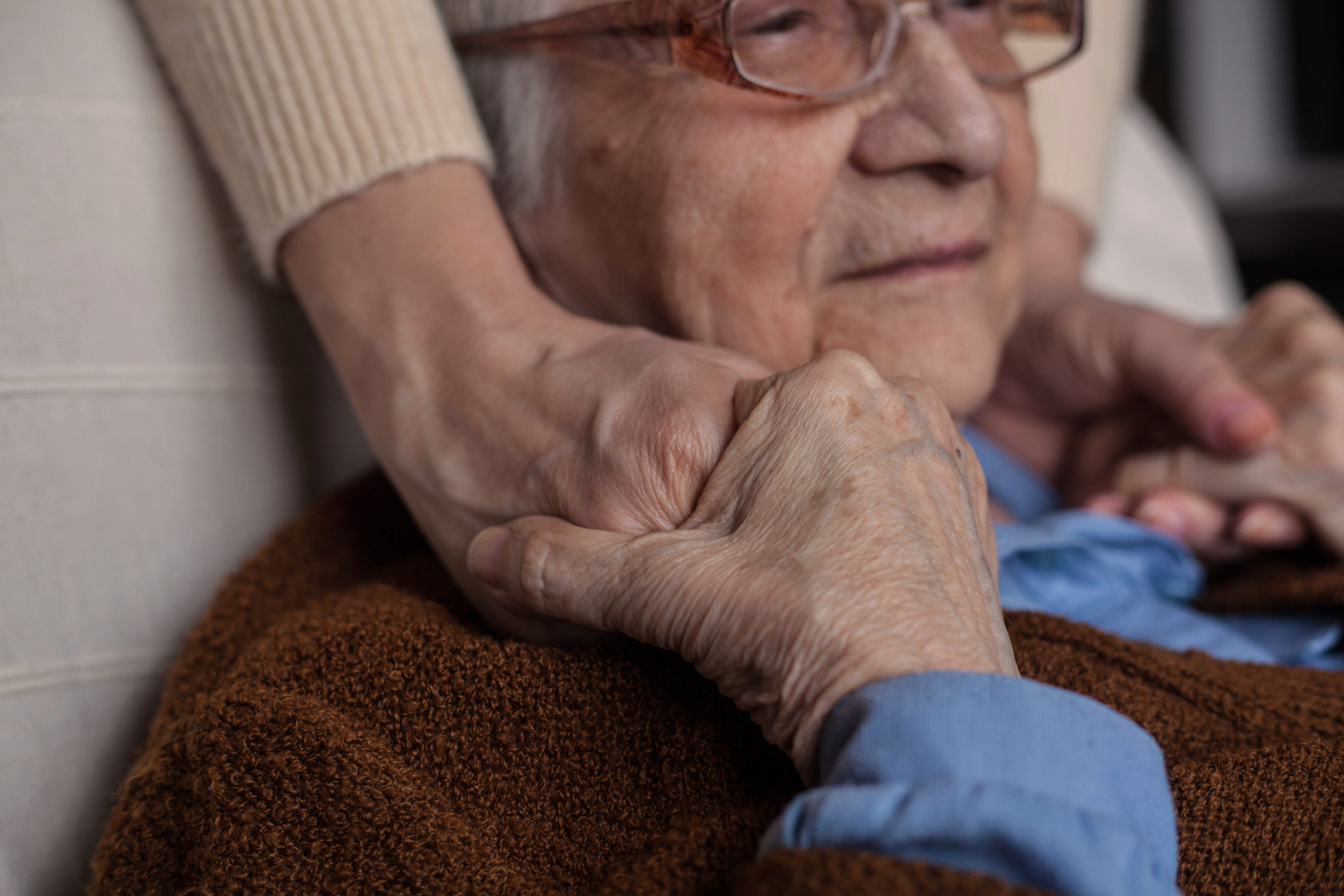
Understand the care needs in the late stages of dementia with these tips from our experts in dementia care in Creve Coeur, MO and nearby areas.
Receiving the news that your senior family member has been diagnosed with dementia is life-changing. Thinking through the many elements and aspects of the disease as well as its impact, both now and the long term, can be overwhelming.
In this three-part series, we have examined the early, middle and late stages of dementia, detailing the type of care recommended during each stage, what family caregivers can expect, and how Compassionate Nursing Services can help.
Caregiving in the Late Stages of Dementia
During the last stage of dementia, which can last a number of years, needs become more pronounced. It’s important to ensure comfort and safety, something that becomes more difficult as the older adult loses the ability to communicate verbally. Self-care for the caregiver is also crucial in this stage, as providing care is often both physically and emotionally draining.
Here is what you may expect to experience during the late stages of dementia:
Greater Care Needs:
- Help with walking (and then transferring when walking is no longer feasible)
- Assistance with eating/drinking, as swallowing becomes more difficult
- Full-time help with personal hygiene needs, including bathroom use
- Monitoring for and addressing any physical health conditions
Ways to Help
Since the senior will eventually lose the ability to express how she or he is feeling and what is needed, it’s important to pay attention to nonverbal cues. Proactive care can be accomplished through careful planning of the older adult’s day, trying to stick as close to a routine as possible for mealtimes, using the bathroom, exercise/repositioning, etc. These tips can help make sure the senior has the very best quality of life and dignity.
Meals:
- Encourage as much autonomy as possible. If the senior can still self-feed, permit plenty of extra time and provide foods that are easier to manage, such as finger foods in small, bite-size portions.
- Always ensure that the older adult is sitting upright during mealtime, and for a period of at least 30 minutes after eating, to avoid risk of choking.
- Provide plenty of liquids. The senior may have lost his/her sense of thirst, and may even forget to drink regularly.
- Keep an eye on the older adult’s weight. Even though some amount of weight loss will be expected with this stage, it’s essential to see the doctor when loss of weight is noted, for his or her recommendations.
Using the Bathroom:
- A bedside commode can be quite helpful in this stage. Help the older adult as needed for safety, but again, let him/her manage as much of the task as possible independently to retain dignity.
- Reminders to use the toilet at regular intervals throughout the day will help prevent an accident.
- It is wise to keep adult diapers and heavily absorbent pads readily available to use as needed, particularly overnight.
- The senior may not have a daily bowel movement. However, speak with the physician if she/he seems to be constipated, and especially if it’s been several days since the last bowel movement.
Personal Care:
- Keeping the older adult’s skin clean and dry is critical in order to avoid sores. A regular bath/shower is not necessary, however. A bed bath can be just as effective.
- Make sure that your older adult loved one changes position at least every 2 hours. If bedbound, use pillows or foam wedges to alleviate pressure, and learn proper repositioning and turning techniques from an expert source.
- Incorporate physical movement into every day, in accordance with the doctor’s approval and recommendations. Even just bending and lifting the arms and legs will help prevent joint freezing.
You can create a soothing environment for the senior with dementia by focusing your time and effort on sensory stimulation, such as by:
- Reading out loud or listening to a podcast together
- Playing or singing his/her favorite music
- Enjoying sitting outside when the weather permits
- Smoothing scented lotion onto the skin
- Baking a well-loved treat or favorite meal
- Reminiscing together through photo albums
- Bringing in a pet therapy animal for the older adult to hold or pet
Connect with Compassionate Nursing Services, a top St. Louis home care agency serving seniors in the surrounding communities, to improve quality of life for a loved one in the late stages of dementia. We’re here 24/7 to help as much or as little as you’d like.
Email or call us any time at 314-432-4312 for more information about our trusted home health care services.
